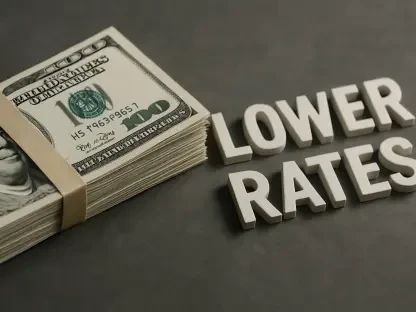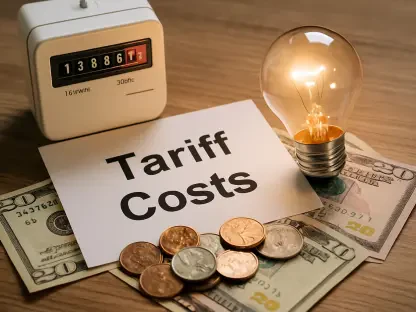In the realm of high-stakes finance, investors constantly strive to master market volatility, transforming unpredictability into opportunity. A new pattern has emerged from tracking former President Donald Trump’s tariff announcements, dubbed the “TACO trade.” This tactic, which hinges on Trump’s tendency to reverse initial tariff threats, illuminates how such political maneuvers impact investment strategies. As investors work to anticipate Trump’s tariff-related announcements, the TACO trade offers insights into leveraging political volatility for substantial gains.
Trump Trade vs. TACO Trade: Evolution in Investor Strategy
The evolution from the “Trump trade” to the “TACO trade” represents a shift in investor focus from traditional economic reforms to navigating trade conflicts. Initially, Trump’s presidency sparked optimism with promises of deregulation and tax cuts that fueled market enthusiasm. This focus pivoted dramatically as geopolitical tensions became more prominent. Observing Trump’s tariff threats and subsequent retreats has led investors to seize market declines prompted by initial threats, anticipating rebounds on policy reversals. Understanding the journey from Trump trade to TACO trade sheds light on strategic adaptability amid a politically charged economic environment.
Navigating Tariff Volatility: The Heart of the TACO Strategy
Harnessing Market Reactions to Political Twists
Central to the TACO strategy is leveraging market fluctuations driven by tariff announcements. These swings often manifest as sharp declines following tariff threats, followed by market recoveries once these threats subside. Instances like the S&P 500’s rebound after “Liberation Day” tariffs demonstrate the effectiveness of this approach. Despite its utility in short-term trading, investors must navigate complex challenges, such as the unpredictability of political shifts that might confound expectations. The TACO strategy requires keen market insight and adept prediction of Trump’s policy patterns.
Strategic Implications and Risks in a Shifting Economic Landscape
While the TACO trade offers prospects for quick profits, it also raises questions about broader economic stability. Reliance on this strategy can inadvertently obstruct long-term growth if trade disputes remain unresolved. Comparative analysis highlights the delicate balance required to capitalize on immediate opportunities while considering long-term ramifications of enduring political volatility. Investors should keep an eye on shifting political landscapes to optimize strategies and mitigate associated risks.
Tailored Approaches for Regional and Sectoral Variations
The TACO trade’s effects vary across regions, influenced by geopolitical nuances that shape market responses. Strategies crafted to accommodate these regional dynamics provide a competitive edge, showcasing the need for individualized investment approaches rather than generalized tactics. Understanding these regional and sector-specific dynamics offers valuable depth and prevents misconceptions that the TACO trade provides universal solutions. Investors ought to adopt context-specific strategies to navigate complex political and economic landscapes.
Anticipating Future Shifts: The TACO Trade’s Sustainability
As geopolitical landscapes evolve, the longevity of the TACO trade garners scrutiny. Emerging technologies, regulatory shifts, and policy transitions will invariably affect this trading strategy. Speculation in the finance community suggests these developments will redefine trading practices, urging investors to remain adaptable and responsive to broad economic changes. Continuous assessment of these factors is crucial for maintaining investment agility in an ever-changing market environment.
Strategic Insights for the Information-Driven Investor
Based on analytical insights, caution is advised for investors exploring the TACO trade. Combining diverse strategies to offset risks linked with political volatility remains paramount. Investors are encouraged to track geopolitical developments actively and adapt strategies flexibly to seize opportunities while hedging against potential reversals. Incorporating a vigilant approach enables optimized engagement with dynamic market movements and strategic positioning.
Reflection and Strategic Directions: Political Maneuvering in Investments
Upon reviewing the emergence of the TACO trade, it highlights the significant interplay between political developments and investment strategy. This approach signifies a shift in investment paradigms, from focusing on reform-driven optimism to a nuanced understanding of political volatility management. Although TACO trading offers lucrative short-term opportunities, its success heavily depends on the intricate balance of global trade negotiations and Trump’s policy unpredictability. Investors navigating these complexities must balance optimism with prudence, remembering the broader economic landscape continues evolving in response to nuanced policy changes.









